My experiments with learning in a remote tribal village of Gujarat
Disillusioned by the current state of education in India, I set out on a journey to discover the beautiful process of learning...

It’s been close to a year since I moved base to a small tribal village called Pindval in Dharampur district of Southern Gujarat. Here, I have been living and unlearning with the kids at Sarvoday Parivar Trust’s school.
My explorations began when I dropped out from college and started doing different projects and internships in various backgrounds, like e-learning, marketing, hands-on learning, web- software development etc. Gradually, I fell in love with the process of ‘learning’.
I was thinking- ‘What is education?’, ‘Why do we need education?’, ‘What is the history of education? How we began?’ ‘Is school the only way to get education?’, ‘How do kids learn?’ ‘How did human culture evolve?’ With all these questions crowding my mind I joined the primary school at Muni Seva Ashram to work directly with kids. For one year, I tried some experiments. I initiated a maker lab model that can be run and managed by kids. I tried project-based method for computer learning, and also tried a 'whole language approach' for English learning. But the best part was working with kids from Class I to IV.
We (a team of teachers) tried to implement multi-level, multi-grade method for kids aged six to 10 years, where every kid can learn in their own pace. During this phase, I realised that I needed to study about ‘learning theories’ and work under the guidance of more experienced people, and hence I started searching for mentors and pushed for the freedom to experiment. Meeting several kind-hearted souls across India, my search brought me to Dharampur to dive deeper into the world of learning.
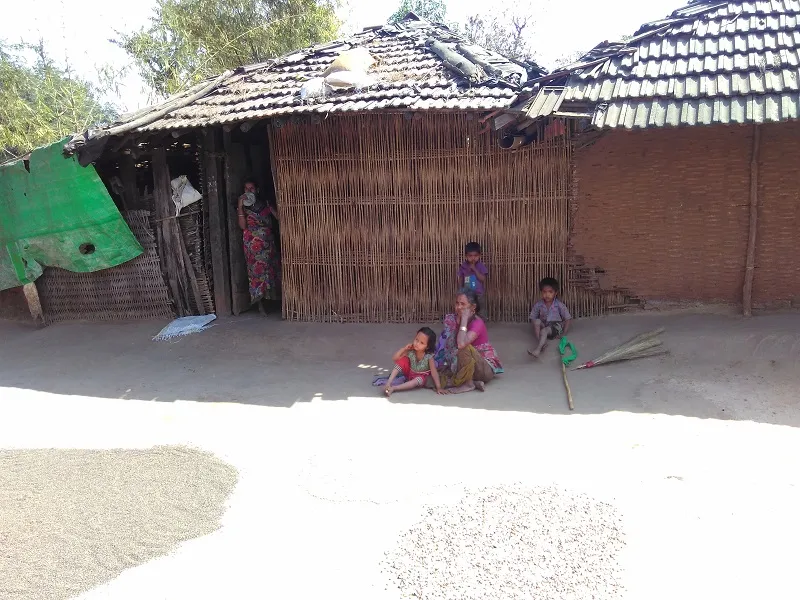
Sarvoday Vidhyalaya is a non-granted school run by Sarvodaya Parivar Trust, but the trait that makes the school stand apart is that we do not run it like a typical classroom at all.
We have 250 kids from Classes I-VIII. My partner, Rajendra, and I are working with 23 kids from Class I. This is not a typical first grade class, with teacher, numbers, alphabets, homework, punishment, and rewards.
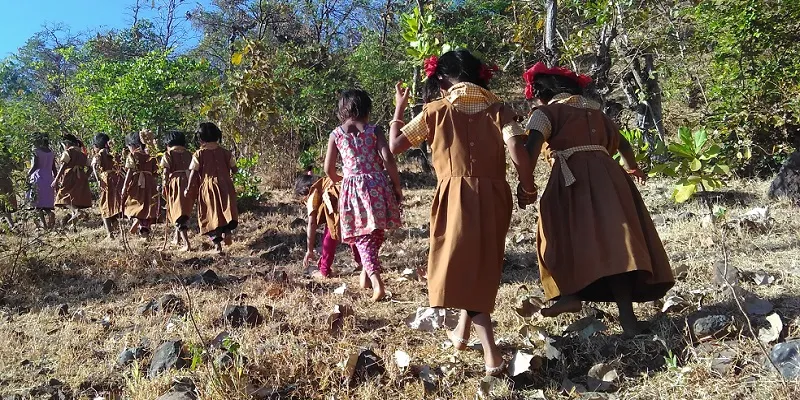
Philosophy
We have full faith in our students and believe they can learn meaningfully and achieve their full potential if they are allowed to do things at their own pace, in an atmosphere of stimulation and thoughtful guidance. We wish to create the conditions in which students can harness their inborn potential to explore, observe, experience, question, make mistakes, develop their own understanding, and empower themselves with knowledge. We believe such a holistic approach to education will lay the ground to evolve thinking individuals who will be active participants in building a society based on peace, equity and democracy.
Learning methodology
Learning environment:
Our teaching methodology is structured around a free learning environment. We have tried to organise our space, materials and other resources in such a way that students can explore and meaningfully engage with them in a natural and unforced manner. We have adult mentors to facilitate the process but they usually intervene only if a student seeks guidance or appears to reach a dead-end. We do not stop students from talking or making mistakes or taking an ‘incorrect’ step. Rather, the idea is to make them aware of the logical consequences of what they are doing so that they can take informed decisions on whether to amend a step or move on.
Every student has a mentor they can turn to, talk with and discuss their encounters and issues with materials or people. The mentor also guides and supports the student’s learning, interests, decisions, errors, questions and the like. This increased interaction with and individual knowledge of every student is recorded daily and serves as a useful guideline in evaluating progress.
Whole language approach
In the first grade, all the kids are speaking their own tribal dialect called Kukana’. It’s very similar to Marathi. Despite being in Gujarat, Gujarati is like a foreign language for them.
In the simplest terms, the whole language approach is a method of teaching children to read by recognising words as whole pieces of language. Proponents of the whole language philosophy believe that language should not be broken down into letters and combinations of letters and 'decoded'. Instead, they believe that language is a complete system of making meaning, with words functioning in relation to each other in context. (Source & read more : Reading Horizons)
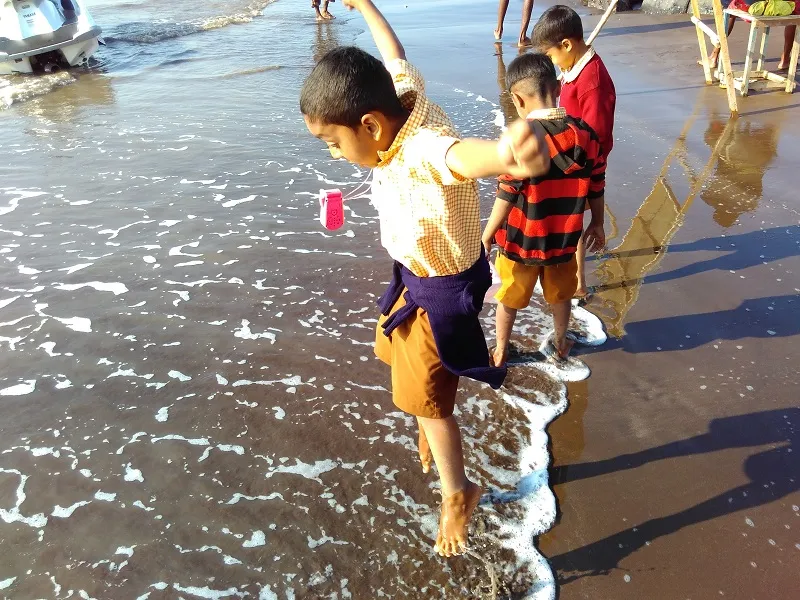
Concrete, Pictorial and Abstract (CPA) method for math
Children and adults can find maths difficult because it is abstract. The CPA approach helps children learn new ideas and build on their existing knowledge by introducing abstract concepts in a more familiar and tangible way.
Concrete is the 'doing' stage, using concrete objects to model problems. Instead of the traditional method of maths teaching, where a teacher demonstrates how to solve a problem, the CPA approach brings concepts to life by allowing children to experience and handle physical objects themselves. Every new abstract concept is learned first with a 'concrete' or physical experience.
For example, if a problem is about adding up four baskets of fruit, the children might first handle actual fruit before progressing to handling counters or cubes that are used to represent the fruit. (Source & read more: Maths No Problem)
Constructive approach for learning
A reaction to didactic approaches such as behaviourism and programmed instruction, constructivism states that learning is an active, contextualised process of constructing knowledge rather than acquiring it. Knowledge is constructed based on personal experiences and hypotheses of the environment. Learners continuously test these hypotheses through social negotiation. Each person has a different interpretation and construction of knowledge process. The learner is not a blank slate but brings past experiences and cultural factors to a situation (Source & read more : Learning Theories)
We are experimenting with this theory in our learning environment. We are trying to deeply observe and document how kids learn. We take notes, photographs, videos of every child and try to analyse their learning patterns.
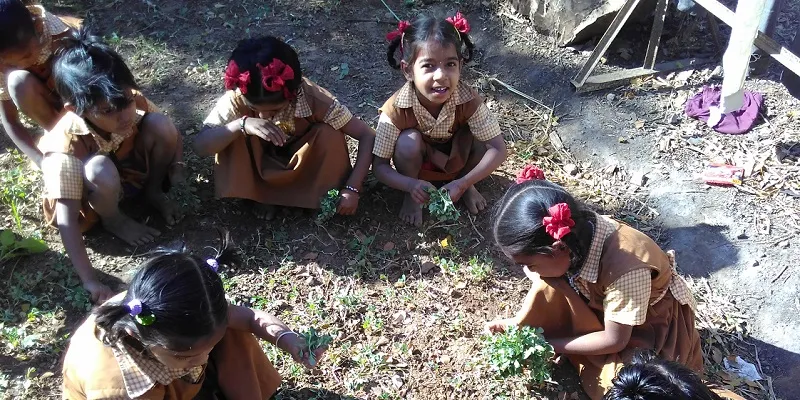
Activities to develop senses
Sensory play includes any activity that stimulates your young child’s senses: touch, smell, taste, sight and hearing. Sensory activities and sensory tables facilitate exploration and naturally encourage children to use scientific processes while they play, create, investigate and explore. Spending time stimulating their senses helps children develop cognitively, linguistically, socially and emotionally, physically and creatively. (Source & read more: PBS)
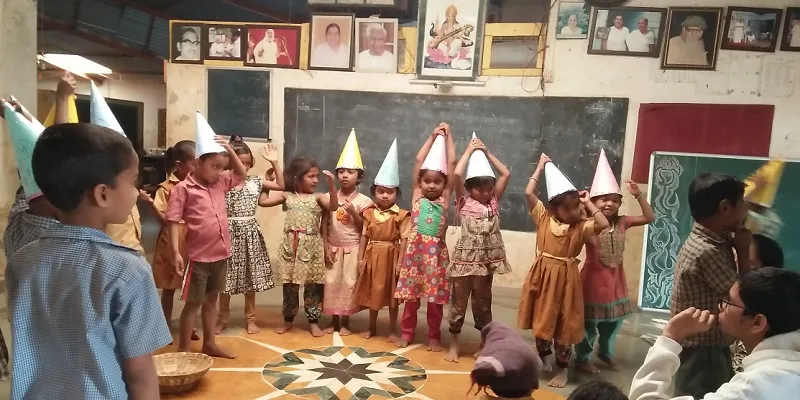
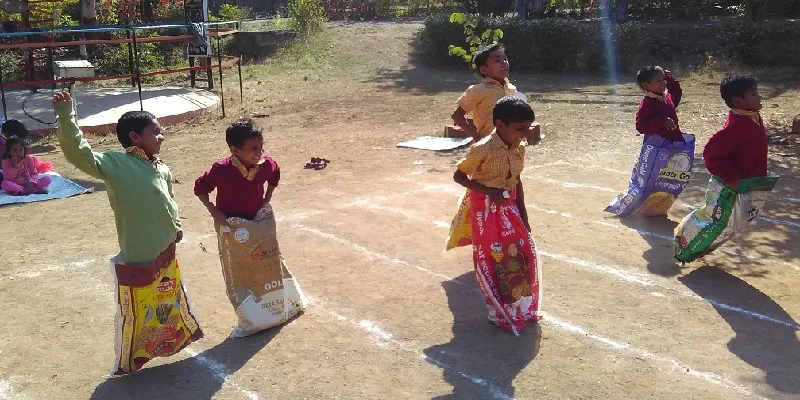
The team at Pindval is happy to collaborate if you're interested in working at the school or helping out in their activities. If you want to learn more about the methodologies and the efforts going on with alternative schooling, write in to us at [email protected] and we’ll make the appropriate connections.







